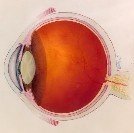| Back to Back Issues Page |
 |
|
Carotenoids Are More Than Carrots and Affect More Than Our Vision March 23, 2017 |
Hello Carotenoids Are More Than Carrots and Affect More Than Our Vision
“What our research has found is that patients with Alzheimer’s disease not only have lower cognition but also considerably poorer vision compared to their peers of the same age without Alzheimer’s. Furthermore, we have found that those with Alzheimer’s are significantly lacking in lutein, zeaxanthin and meso-zeaxanthin. These nutrients are known as dietary carotenoids and at the back of the eye where they are vitally important, they are referred to as macular pigment." states Professor John Nolan, Principal Investigator at the Vision Research Centre and a Fulbright Scholar, Howard Foundation Chair and European Research Council (ERC)-funded Fellow.
Carotenoid Supplementation Improves Cognitive FunctionAn association between higher macular pigment levels and better cognition testing was shown in an analysis of data from about 4500 adults aged ≥50 years enrolled in The Irish Longitudinal Study on Aging.
Professor Nolan adds, "We were the first to measure macular pigment in patients with Alzheimer’s disease. We found the levels to be very low, and we also found that about half of the patients with Alzheimer’s disease had AMD.” As one who has devoted his career to studying macular pigment (MP), Professor John Nolan provides further insight into the role of MP in eye health and macular degeneration in an e-interview and two documentaries on the vital research being done at the Macular Pigment Research Center.
Leslie Degner, RN, BSN Better Health for Better Vision |
| Back to Back Issues Page |

